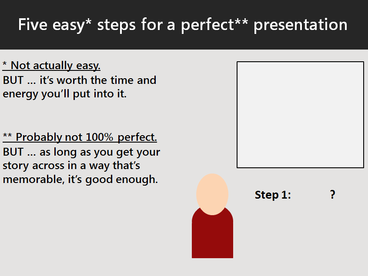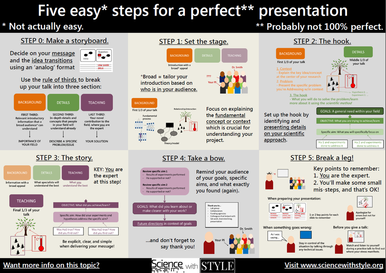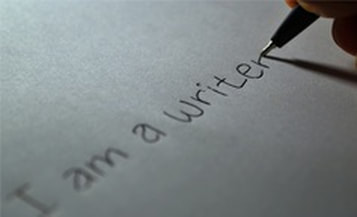The five easy* steps to a perfect** presentation series
|
Five Easy* Steps for a Perfect** Presentation, Part 1: Before you open Powerpoint (19 Aug 2015)
There are piles of books, tons of pamphlets, and a wide array of websites focused on how to give a good scientific presentation. So how am I, a classic introvert who gets nervous about... 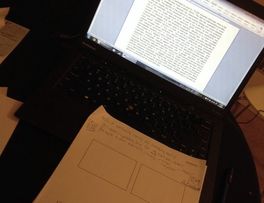
A tutorial for the five easy* steps for a perfect** presentation: Making a storyboard, introduction, and the hook (30 Sept 2015)
In previous posts I laid out five (plus/minus one or two) easy* steps for developing a scientific presentation. For ... |
Five Easy* Steps for a Perfect** Presentation, Part 2: The actual five steps (26 Aug 2015)
Now that you’ve done most of the ground work while making your story board, the rest of the steps should fill themselves in easy enough. You've done all the lab work, analyzed ... 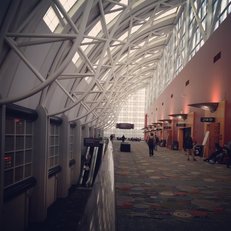
Finishing out the five easy* steps at #SETACSLC: The story, take a bow, and break a leg (9 Nov 2015)
Greetings from the sunny Midwest of the US of A, relaxing at my parent's house after the SETAC North America meeting. After a busy week of science,... |
Science writing tips and tricks
|
The Art of Science Writing, Part 1: Getting Started
(13 April 2016) We’ve previously touched on writer’s block, and the strategies and tips you can use to get over the initial hurdle of the blank 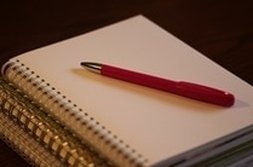
Writer's block: Why do scientists hate writing and what can we do about it? (16 Sept 2015)
Every week when I think about what to write for Science with Style, inspiration seems to come at the very last moment, and so far most of my blog posts have been inspired by... |
The Art of Science Writing, Part 2: Putting words onto paper (or, more likely, Word documents) (20 April 2016)
Last week we began our how-to-guide with the key steps that need to be taken before you start writing ... 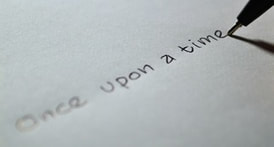
The science of storytelling: Connecting readers with science using a narrative approach (15 Jun 2016)
Last week I heard a great podcast news report about the way we talk about scientists and how that can inspire (or intimidate) those in the next generation and affect their desire to become scientists. In ... |

